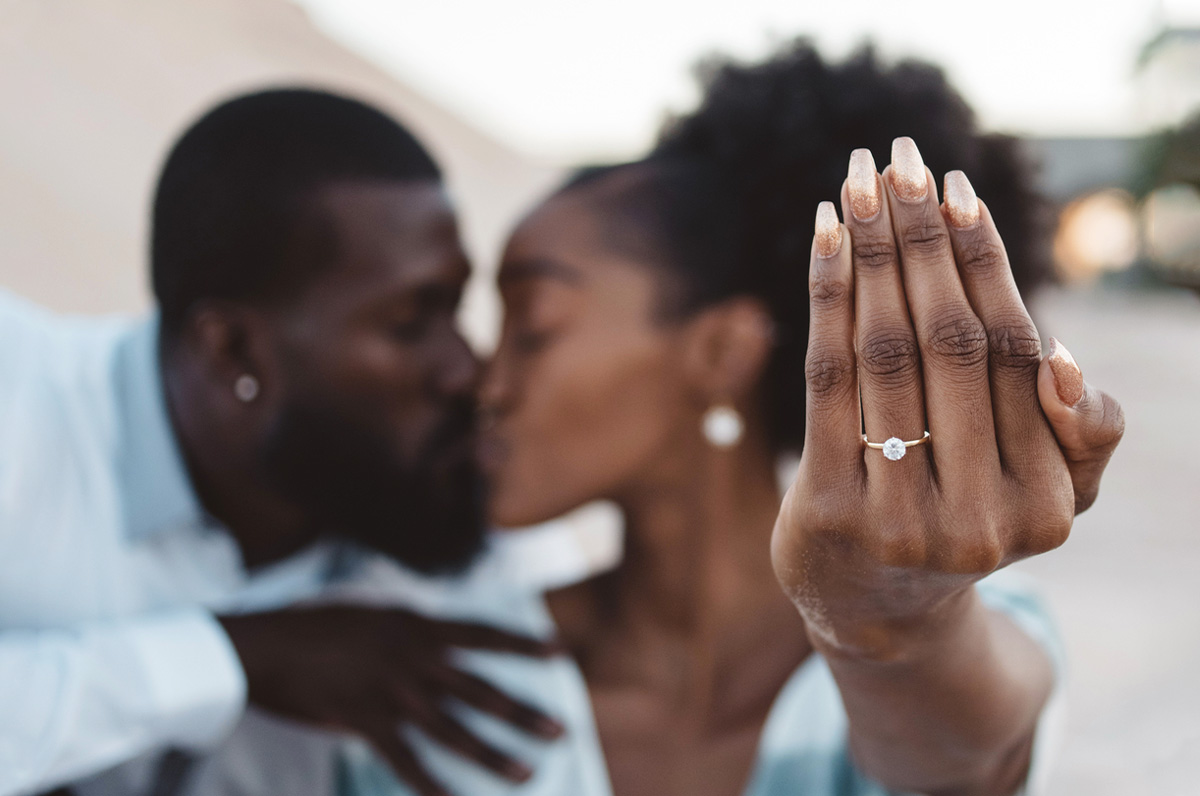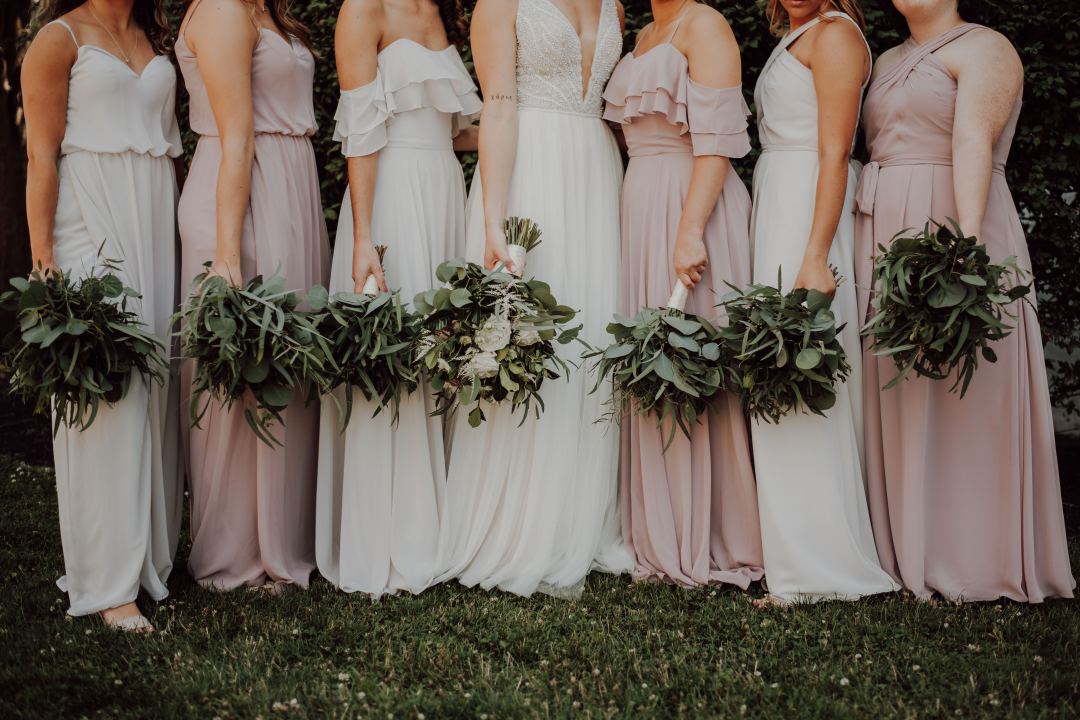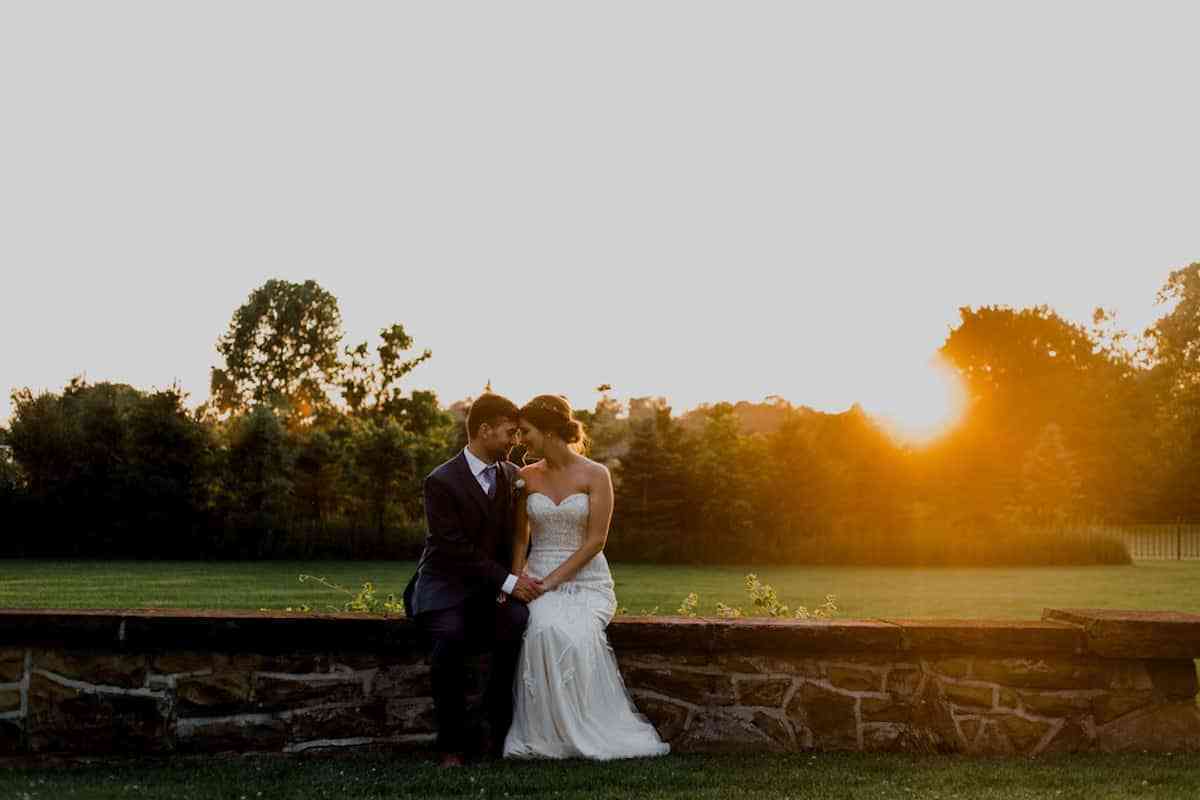- Expert advice/
- Wedding planning 101/
- Wedding planning questions/
- How to Relieve Wedding Planning Stress Using the 7 Types of Rest
- Wedding planning questions
How to Relieve Wedding Planning Stress Using the 7 Types of Rest
Prioritizing rest—and making it a habit—is a non-negotiable if you want to feel (and function!) your best. It’s especially true during periods of high stress—you know, like when you’re planning a wedding. Here are our tips to help you destress in any way that fits you best.
Last updated February 5, 2024

The importance of rest can not be understated. Getting enough rest is, hands down, one of the best things you can do to support your health, happiness, and well-being. It can translate into higher energy, sharper focus, better mood, better physical performance…the benefits (for both your physical health and your mental health) are virtually endless.
But on the flip side, not getting enough rest can translate into a host of health issues, both physical and mental—and, if you don’t get enough rest over a long period of time, can lead to burnout.
But not all rest is created equal—and if you feel exhausted throughout the day, chances are, you’re not getting the right type of rest. Because, as it turns out, there are actually seven different types of rest. And if you want to feel well rested as you plan your wedding, you need to understand each type—and when that type is the type of rest you need.
Let’s take a look at everything you need to know about rest: the different types of rest, how to rest for each type, and how to relieve wedding planning stress using the 7 types of rest:
The 7 Types of Rest Explained
The different types of rest is a framework pioneered by Dr. Saundra Dalton-Smith, author of Sacred Rest: Recover Your Life, Renew Your Energy, Restore Your Sanity. According to Dr. Dalton-Smith, there are 7 different types of rest, including:
1. Mental Rest
If your thoughts are going a mile a minute, chances are, you’re experiencing a mental rest deficit. Taking a mental rest is about giving your brain a break from thinking, problem-solving, and anything that’s too mentally stimulating or overwhelming. Taking a mental rest could include activities like journaling (to get your thoughts out of your head and onto the paper) or taking a breather from work to go on a walk or meditate.
2. Physical Rest
When most people hear the word “rest,” they automatically think of sleep—which is a form of physical rest. Physical rest is all about giving your body a chance to rest and recharge. Sleep is the most important form of physical rest. (There’s a reason you need eight hours of sleep every day!) But active physical rest—like stretching or getting a massage—can also help you get out of a rest deficit.
3. Emotional Rest
Emotional rest is about being open and honest with your feelings. If you’re the type of person that buries their feelings, says yes when you mean no, or has a tendency to “people please” to avoid confrontation, chances are, you need emotional rest—for example, by setting boundaries around your time or talking to a friend when you’re feeling sad or angry.
4. Creative Rest
Feeling creatively stuck? Struggling to come up with new or fresh ideas? Then you’re in need of a creative rest. Taking a creative rest is all about getting inspired and exposing yourself to things that will spark your creativity (without feeling like you have to produce anything in response)—for example, visiting an art gallery, spending time in nature, or taking a weekend road trip to a new place.

5. Social Rest
If you’re feeling socially tapped out, social rest can help you recharge. Depending on your situation, taking a social rest can mean taking a complete step back from socializing and spending more time alone—or it can just mean taking a step back from the social relationships and obligations you find taxing and, instead, focusing on the social connections that feel the most supportive and energizing.
6. Sensory Rest
From text notifications to phone ringers, background noise from the TV to the bright lights common to most office buildings, in today’s technology-focused world, you’re constantly bombarded with sensory stimuli—and often all at once. And once you reach your limit, it can feel like your senses are completely overwhelmed (aka sensory overload). Sensory rest is about taking a break from all that stimulus and giving your sense a chance to rest and recover.
7. Spiritual Rest
When you’re feeling discouraged, disillusioned, or struggling to find meaning in life, you need to connect with something larger than yourself, rediscover your sense of awe and wonder, and get a better sense of the bigger picture. Spiritual rest is anything that helps you gain that perspective—for example, immersing yourself in nature or volunteering with your community.
Understanding the 7 types of rest is important to ensure you get the type of rest you need, when you need it. For example, if you need social rest, napping or getting enough sleep isn’t necessarily going to make you feel well-rested; instead, saying “no” to lunch with a toxic co-worker or spending a Friday night hanging out by yourself are more likely to do the trick. On the flip side, if you’re physically exhausted and running on fumes, it doesn’t matter if you clear your schedule or cancel your plans—to feel like you got the rest you need, you need to catch up on sleep.

The Importance of Rest for Wedding Stress Relief
Getting enough rest—and, more specifically, getting enough of the different types of rest—is always important. But when you’re planning a wedding (which is totally normal!)—and dealing with the stress and overwhelm that often goes along with it—understanding the different forms of rest and what a whole rest looks like can be an amazing tool for keeping wedding anxiety at bay.
Getting the right type of rest during the wedding planning process can offer a host of benefits—both to your wedding and your overall health and happiness—including:
- More energy. When you tune into what type of rest you need—and then give yourself that type of rest—you’ll have more energy to power through your wedding to-do list.
- Organization improvement. Planning a wedding requires focus and organizational skills. But without proper rest, it’s hard to stay focused and energized. Prioritizing rest—and the right type of rest—can help you stay more focused, organized, and on top of the wedding planning process.
- Feeling more creative. When you’re well rested, you’re more inspired and creative—and you can tap into that inspiration and creativity to make your wedding feel more uniquely you.
- Feeling more relaxed. Wedding stress is real. But when you’re getting enough rest (and enough of the different types of rest you need to feel your best), you’re in a better position to manage that stress and feel more relaxed as you plan your big day.
- Enjoying the process. Planning a wedding may be stressful—but it’s also a really special time for you and your partner. Getting proper rest can help you keep wedding anxiety and stress and bay—and allow you to be more present for the process.
Rest Effectively With Zola’s Help
Getting the right types of rest is crucial to staying happy, relaxed, and stress-free as you plan your wedding. But so is having access to the right resources—and that’s where Zola comes in. Zola has all the information you need to stay relaxed in the months leading up to your big day, like how to save stress with your wedding website, who should be helping you plan your wedding, or how to handle parents that are way too involved in the wedding planning process. Zola also has the tools you need to bring your wedding vision to life, including a wedding planning checklist, wedding invitations, and a wedding website builder. Whatever you need to keep wedding stress at bay—and actually enjoy the process of planning your special day? Zola has got you covered.
Up next for you

8 Top Advice for Engaged Couples Before Tying the Knot
Advice
Getting ready to walk down the aisle? Review this top advice for engaged couples before saying your “I dos!” Read on now.

61 Best Engagement Gift Ideas for Couples in 2024
Inspiration
Discover thoughtful and trending engagement gifts for couples in 2023. Find the perfect way to celebrate their love as they embark on this new journey together.

The Complete Guide to Mismatched Bridesmaid Dresses
Inspiration
Letting your bridesmaids pick their own dresses for your wedding day means confident bridesmaids and less stress for you. Here are the do’s and don'ts of letting your bridesmaids pick out their own dress.

How to Set Your Wedding Budget Step by Step
How-To
While it may not be the most exciting item on your to-do list, setting your wedding budget is essential. We’ll break down the typical expenses, guide you through the entire process from start to finish, and tell you where you can save money.
Featured

How to Break Out of the #WeddingDiet Mentality
How To
The impulse to diet or lose weight for your wedding is strong. Here's how to break the cycle and focus less on your wedding diet and more on a healthy body and stress-free wedding planning.

5 Effective Ways to Fight Wedding Planning Stress
How-To
Weddings are fun, but planning them can be stressful. Here are practical ways to deal with wedding planning stress.

29 Ways to Cut Wedding Costs
Budgeting
Need to cut wedding costs? Here are five ways to do so that you might not have thought about. Read up, and get ready to spend smart!

Thank You Card Etiquette
How To
Your guests spent time and money celebrating your special day. Learn how to say thank you the right way with this wedding thank you card etiquette guide.
- Expert advice/
- Wedding planning 101/
- Wedding planning questions/
- How to Relieve Wedding Planning Stress Using the 7 Types of Rest
Find even more wedding ideas, inspo, tips, and tricks
We’ve got wedding planning advice on everything from save the dates to wedding cakes.
